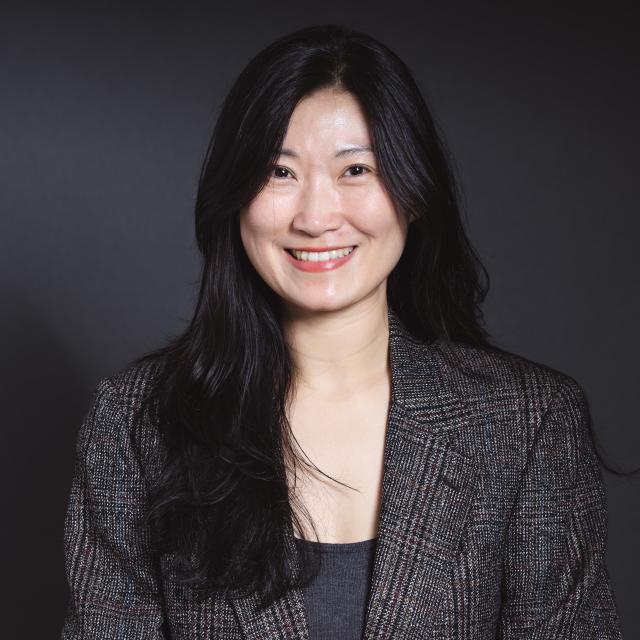Singer, D. J., Grim, P., Bramson, A., Holman, B., Jung, J., & Berger, W. J. (2024). The epistemic role of diversity in juries: An agent-based model, Journal of Artificial Societies and Social Simulation, 27(1).
Jung, J. (2023). Two dual-categorization theories of tolerance: Commentary on Simon (2023). American Psychologist, 78, 745–747.
Jung, J. (2023). Change and persistence: A social psychological perspective on gender norms in South Korea. In Proceedings of Gender Equity in South Korea Forum. RAND Corporation.
Gaffney, A. M., Souter, S. S., Jung, J., & Crano, W. D. (2023). Contexts and conditions of outgroup influence. Psychology of Language and Communication, 27, 173‒198.
Berger, W. J., Singer, D. J., Bramson, A., Grim, P., Jung, J., & Holman, B. (2022). Philosophical Considerations of Political Polarization. In d. Bordonaba, F. Castrom, & R. Vidal (Eds.), The Political Turn in Analytic Philosophy: Reflections on Social Injustice and Oppression, 11, 279.
Jung, J., Bramson, A., Crano, W., Page, S., Miller, J. H. (2021). Cultural drift, indirect minority influence, network structure, and their impacts on cultural change and diversity. American Psychologist, 76, 1039‒1053.
Singer, D. J., Bramson, A., Grim, P., Holman, B., Kovaka, K., Jung, J., & Berger, W. J. (2021). Don’t forget forgetting: The social epistemic importance of how we forget. Synthese, 198, 5373–5394.
Singer, D. J., Bramson, A., Grim, P., Holman, B., Jung, J., & Berger, W. J. (2021). Epistemic networks and polarization. In M. Hannon & J. de Ridder (Eds.), The Routledge Handbook of Political Epistemology, (pp. 133‒144). New York, NY: Routledge.
Grim, P., Singer, D. J., Bramson, A., Berger, W. J., Jung, J., & Page, S. (2020). Representation in models of epistemic democracy. Episteme, 17, 498–518.
Jung, J., Grim, P., Singer, D. J., Bramson, A., Berger, W. J., Holman, B., & Kovaka, K. (2019). A multidisciplinary understanding of polarization. American Psychologist, 74, 301‒314.
Singer, D. J. Bramson, A. Grim, P., Holman, B., Jung, J., Kovaka K, Ranginani, A., & Berger, W. J. (2019). Rational social and political polarization. Philosophical Studies, 176, 2243–2267.
Jung, J., Hogg, M. A., & Choi, H-S. (2019). Recategorization and ingroup projection: Two processes of identity-uncertainty reduction. Journal of Theoretical Social Psychology, 3, 97‒114.
Zhang, R. J., Liu, J. H., Milojev, P., Yamaguchi, S., Morio, H., Jung, J., Choi, H-S., Tian, X., & Wang, S-F. (2019). The structure of trust as a reflection of culture and institutional power structure: Evidence from 4 East Asian societies. Asian Journal of Social Psychology, 22, 59‒73.
Jung, J., Hogg, M. A., Livingstone, A. G., & Choi, H-S. (2019). From uncertain boundaries to uncertain identity: The effects of entitativity threat on identity-uncertainty and emigration. Journal of Applied Social Psychology, 49, 623–633.
Choi, H-S., Lee, H-Y., & Jung, J. (2019). Relationship between nested social identity uncertainty, group identification, reconciliatory attitudes and intentions in Korea. Korean Journal of Social and Personality Psychology, 33, 45–59.
Jung, J., Page, S. E., Miller, J. H., Bramson, A., & Crano, W. D. (2018). The impact of indirect minority influence on diversity of opinion and the magnitude, speed, and frequency of social change. In Proceedings of the 2018 conference of the Computational Social Science Society of the Americas.
Jung, J., Hogg, M. A., & Lewis, G. J. (2018). Identity uncertainty and UK-Scottish relations: Different dynamics depending on relative identity centrality. Group Processes and Intergroup Relations, 21, 861‒873.
Kerr, N. & Jung, J. (2018). Should jurors be allowed to discuss trial evidence before deliberation?: New research evidence. Law and Human Behavior, 42, 413‒426.
Jung, J., Bramson, A., & Crano, W. D. (2018). An agent-based model of indirect minority influence on social change and diversity. Social Influence, 13, 18‒38.
Wagoner, J., Belavadi, S., & Jung, J. (2017). Social identity uncertainty: Conceptualization, measurement, and construct validity. Self and Identity, 16, 505‒530.
Jung, J., Page, S. E., & Miller, J. H. (2017). Minority and diversity: Extension of indirect minority influence model. In Proceedings of the 2017 conference of the Computational Social Science Society of the Americas.
Jung, J., Hogg, M. A., & Choi, H-S. (2016). Reaching across the DMZ: Identity uncertainty and reunification on the Korean peninsula. Political Psychology, 37, 341‒350.
Pulick, E., Korth, P., Grim, P., & Jung, J. (2016). Modeling interaction effects in polarization: Individual media influence and the impact of town meetings. Journal of Artificial Societies and Social Simulation, 19 (2) 1.
Jung, J. & Bramson, A. (2016). A recipe for social change: Indirect minority influence and cognitive rebalancing. In Proceedings of the Annual Conference of the Computational Social Science Society of the Americas.
Jung, J. & Bramson, A. (2014). An agent-based model of indirect minority influence on social change. In H. Sayama, J. Rieffel, S. Risi, R. Doursat, & H. Lipson (Eds.), Proceedings of the 14
Th International Conference on the Synthesis and Simulation of Living Systems, (pp. 400‒407). Cambridge, MA: MIT Press.


